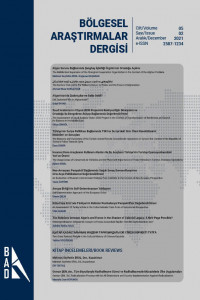Küba Füze Krizi’nde Türkiye’nin Rolünün Postkolonyal Perspektiften Değerlendirilmesi
An Assessment of Turkey’s Role in the Cuban Missile Crisis from a Postcolonial Perspective
Author(s): Ufuk AlkanSubject(s): International relations/trade, Military policy, Cold-War History, Geopolitics, Politics and Identity, Peace and Conflict Studies
Published by: Mehmet Seyfettin Erol
Keywords: Cuban Missile Crisis;Postcolonialism;Turkey-US relations;Turkey-USSR Relations;Cold War;
Summary/Abstract: In traditional Western narrative of the Cuban Missile Crisis, Turkey is featured as the place where the USA placed its Jupiter missiles. In this narrative, while the main actors of the crisis are the USA and the USSR, Turkey is a country in the Western Bloc in the Cold War environment and ‘naturally’ supports the policies of the USA against the USSR. The aim of this study is to evaluate the Cuban Missile Crisis from a postcolonial perspective and to reveal to what extent postcolonial thought can listen to the voices of others like Turkey in the Western-oriented IR discipline.
Journal: Bölgesel Araştırmalar Dergisi
- Issue Year: 5/2021
- Issue No: 2
- Page Range: 673-700
- Page Count: 28
- Language: Turkish

